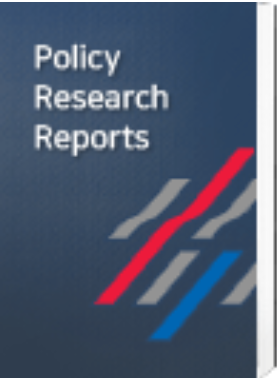Policy Report

RESEARCH
KOTI - Korea Transport institute
A Study on Evaluation System for Railway Service
- Date
November 16 2021
- Page(s)
page(s)
#Railway service
#quality evaluation
#passenger service

Evaluation of railway service quality aims at enhancing the quality of railway service for railway passengers. The government evaluates passenger and freight services provided by railway operators. Although previous studies proposed various improvements for the evaluation system of railway service quality, it is still required to establish methodologies for the evaluation since consistency between other railway service and safety evaluations has not been considered.
This study aims to improve the evaluation system for the railway service quality. Compared to previous studies, this study proposes an overall methodology for evaluating each indicator, with consideration for other railway-related evaluation guidelines, laws, and regulations.
To achieve the research aim, this study reviewed existing indicators for evaluating railway service quality. In addition, this study reviewed the railway operation strategy and other guidelines for evaluating railway safety. Based on these reviews, this study derived four major common issues from the current methodology of the evaluation of railway service quality. First, it is required to apply a weighted average when calculating the score of each railway line and operator. Second, criteria for the evaluation should be clearly established. Third, consistency between the evaluation of railway service quality and other railway-related evaluations should be enhanced. Last, a common level of railway service should be applied to all indicators if possible. Based on these major common issues, this study proposed a methodology to evaluate each indicator, by enhancing consistency with other railway-related evaluations and guidelines. In addition, this study added a new indicator, for the evaluation of railway service quality.
There are suggestions in order to improve the evaluation of railway service quality from an institutional-based perspective. First, it is required to evaluate not only railway operators but also a railroad facility manager since some stations belong to the facility manager. Second, a step-by-step process for introducing a new indicator should be established. Third, consistency between railway-related evaluations should be more enhanced. Fourth, it is necessary to utilize the result of the evaluation of railway service quality by providing financial support based on the result of the evaluation. Fifth, a specialized organization, that performs railway-related evaluations, should evaluate the railway service quality. Sixth, a system to survey railway passengers' satisfaction all the time should be developed. Finally, a budget for the evaluation of railway service quality should be increased. The current budget is not enough to evaluate more than 100 stations for passengers' satisfaction and on-the-spot surveys. The average number of respondents per station was only about 24 persons in 2020 due to the limited budget. For improving railway service quality by considering passengers' opinions, it is essential to increase a budget for the railway service evaluation.
This study aims to improve the evaluation system for the railway service quality. Compared to previous studies, this study proposes an overall methodology for evaluating each indicator, with consideration for other railway-related evaluation guidelines, laws, and regulations.
To achieve the research aim, this study reviewed existing indicators for evaluating railway service quality. In addition, this study reviewed the railway operation strategy and other guidelines for evaluating railway safety. Based on these reviews, this study derived four major common issues from the current methodology of the evaluation of railway service quality. First, it is required to apply a weighted average when calculating the score of each railway line and operator. Second, criteria for the evaluation should be clearly established. Third, consistency between the evaluation of railway service quality and other railway-related evaluations should be enhanced. Last, a common level of railway service should be applied to all indicators if possible. Based on these major common issues, this study proposed a methodology to evaluate each indicator, by enhancing consistency with other railway-related evaluations and guidelines. In addition, this study added a new indicator, for the evaluation of railway service quality.
There are suggestions in order to improve the evaluation of railway service quality from an institutional-based perspective. First, it is required to evaluate not only railway operators but also a railroad facility manager since some stations belong to the facility manager. Second, a step-by-step process for introducing a new indicator should be established. Third, consistency between railway-related evaluations should be more enhanced. Fourth, it is necessary to utilize the result of the evaluation of railway service quality by providing financial support based on the result of the evaluation. Fifth, a specialized organization, that performs railway-related evaluations, should evaluate the railway service quality. Sixth, a system to survey railway passengers' satisfaction all the time should be developed. Finally, a budget for the evaluation of railway service quality should be increased. The current budget is not enough to evaluate more than 100 stations for passengers' satisfaction and on-the-spot surveys. The average number of respondents per station was only about 24 persons in 2020 due to the limited budget. For improving railway service quality by considering passengers' opinions, it is essential to increase a budget for the railway service evaluation.